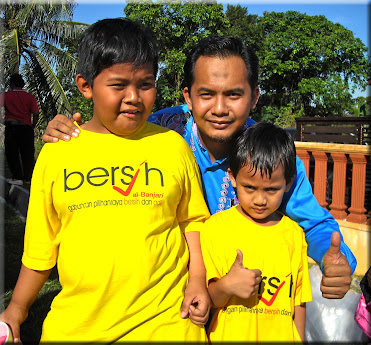Malaysia fell to its worst ranking ever - dropping by 32 spots to 124 - in the latest worldwide press freedom index released by Paris-based watchdog Reporters Without Borders (RSF). The index, released yesterday, immediately drew criticism from Malaysian groups, which called on the government to free the press.
Last year, Malaysia was placed 92nd - second after Timor-Leste among the Southeast Asian countries.In the latest ranking of 169 countries, Malaysia was placed fourth among Southeast Asian countries after Cambodia (85), Timor-Leste (94) and Indonesia (100).
Its ranking puts it almost in the bottom quarter of all the countries surveyed.RSF cited the “serious, repeated violations of the free flow of online news and information” as its reason for giving a low rating to countries like Malaysia, Thailand, Vietnam and Egypt.
countries like Malaysia, Thailand, Vietnam and Egypt.
 countries like Malaysia, Thailand, Vietnam and Egypt.
countries like Malaysia, Thailand, Vietnam and Egypt. It explained that the violations included arrests of bloggers and closure of - or difficulty in accessing - news websites in these countries.
“We are concerned about the increase in cases of online censorship. More and more governments have realised that the Internet can play a key role in the fight for democracy and they are establishing new methods of censoring it,” RSF noted in its report.
“The government of repressive countries are now targeting bloggers and online journalists as forcefully as journalists in the traditional media.”
Wake-up call Commenting on Malaysia’s ranking, Writers Alliance for Media Independence (Wami) spokesperson Wong Chin Huat said the fall should serve as a wake-up call for the nation and the government.
Wong said the period covered by the index - from Sept 1 last year to Sept 1, 2007 and which coincided with the nation’s 50th anniversary of independence, shows how low the country has sunk after half a century.
“The harassment of web activists and cyber-dissidents - from Raja Petra Kamarudin, Nathaniel Tan to Namewee (photo) - indicates the growing intolerance of (Prime Minister) Abdullah Ahmad Badawi’s government,” he said in an e-mail communique.
Equally disturbing, he said, was the month-long suspension of Tamil daily Makkal Osai over a cartoon that allegedly offended the Christian comm unity even though the churches had accepted the daily’s apology.
unity even though the churches had accepted the daily’s apology.
 unity even though the churches had accepted the daily’s apology.
unity even though the churches had accepted the daily’s apology. “All this, plus the latest revelation by Information Minister Zainuddin Maidin that the premier wants no truth from the media, suggests that Barisan Nasional’s pledge in the 2004 general election for openness and reform was nothing but empty promises to fish votes,” he added.
“The Malaysian public must send a clear message to the government and politicians that we want freedom of information and of expression.”
Transparency International-Malaysia president Ramon Navaratnam, when contacted, expressed surprise at Malaysia’s significant drop. He said this could be due to contradictions between the government’s pledge towards greater openness and its actions against the mass media and bloggers.
“This gap can only be closed with the improvement of the delivery system,” he said. Ramon called on the government to ensure more transparency in its administration and enact a freedom of information (FOI) law - a call that has been persistently made by civil society and journalism groups, as well as political parties.
“The FOI law is important and the press should be encourage to publish more freely. What comes out in Malaysiakini does not necessarily come out in the mainstream press and this is the contradiction which international observers will take into account when considering the degree of press freedom,” he said.
The annual index measures the state of press freedom and reflects the degree of freedom that journalists and news organisations enjoy in each country. It also takes into account efforts made by the state to respect and ensure respect for this freedom.
The index this year was compiled with information from 15 freedom of expression organisations that are RSF partners worldwide; and its network of 130 correspondents, journalists, researchers, jurists and human rights activists. Iceland held top place, while Eritrea came in last.

























0 Pandangan
Post a Comment